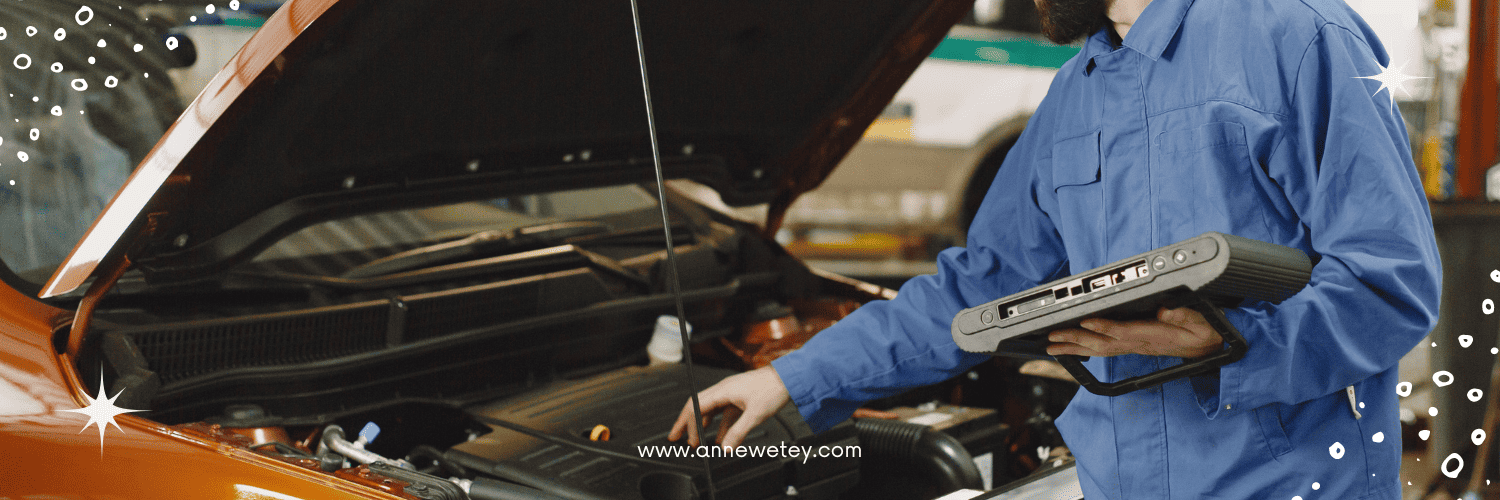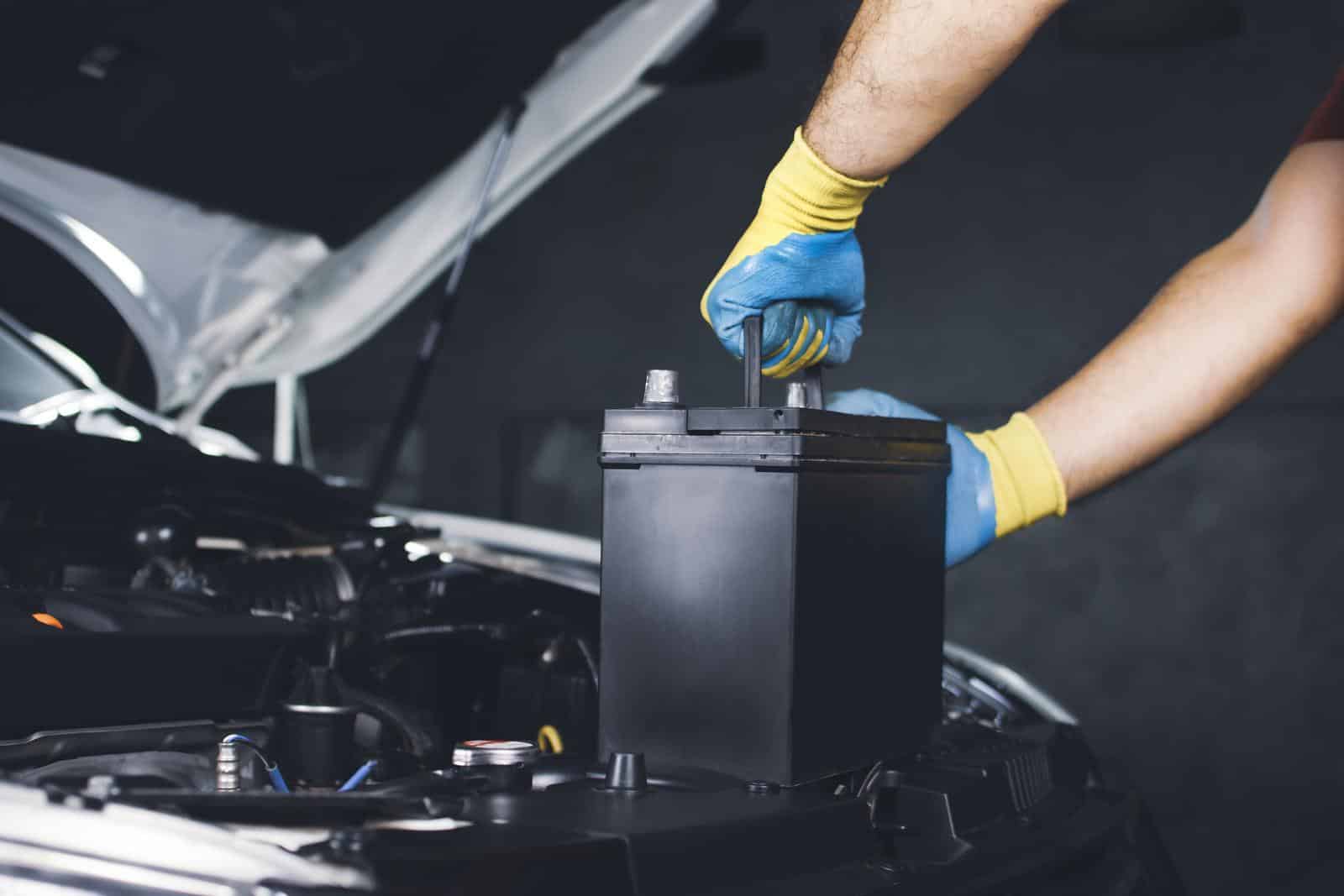Can a Car Battery Die While Driving?
Introduction
Your car can stall suddenly for several reasons, including fuel pump failure, shortage of fuel, over-heating, ignition coil faults, engine oil shortage etc. But the question here is: can your car battery die while driving? In this article, we will focus on when your car stops suddenly due to battery failure.
A car battery dying while driving is a potential nightmare for any driver.
- You can become stranded in the middle of nowhere in a very dangerous area.
- A stalled car in the middle of a busy highway is at risk of a serious accident
- You may lose power steering control or the steering wheel will become really stiff and difficult to control
- Be stuck in a dark location with no emergency lights on your vehicle.
In this blog post, we will look at the causes behind a dead car battery while driving, and also provide tips to prevent it from happening.
Can a Car’s Battery Die While Driving?
Yes, a dead battery can cause your vehicle’s engine to stall, even while you’re driving, but it’s not JUST because of a faulty battery.
Knowing the factors behind a dead car battery can go a long way to help you avoid being stranded and prevent costly repairs.
A friend once called me from work because her car wouldn’t start. I found that the alternator wasn’t working and so the battery was discharged. I swapped her dead battery with my spare battery and told her to get to an auto repair shop as soon as possible.
Unfortunately, she didn’t listen. She thought she could have it checked the next day. A few hours later, her car stalled again in the middle of a four-lane highway, while driving home.
Stick with us as we explore the causes and solutions to a dead car battery while driving.
What Should I Do If My Car Battery Dies While Driving?

- If your car battery dies while driving, don’t panic! Remember, safety first.
- Immediately, put on your hazard lights so that other drivers know something might be wrong with your vehicle.
- If the car can still coast or you’re on a hill and can roll forward, then coast or push it to the side of the road or somewhere safe, such as a parking lot or empty side street where there are no obstacles that could cause an accident.
- Once you have stopped, turn off your ignition and pop the hood of your car.
- Turn off all non-essential electrical loads, e.g. phone chargers, radio, air-conditioning, heated seats, dome lights, etc
- If you have jumper cables or a portable jump starter, use those to jumpstart your car (just make sure whoever helps follows all safety guidelines!).
- If you don’t have those available, you may need to call for roadside assistance or for a tow truck. If you are on a busy highway, it may be best to exit the vehicle completely and find a safe spot to wait.
- If you’re able to jumpstart your car, it’s a good idea to get your battery checked and replaced if necessary to avoid a similar situation in the future.
What Causes a Car Battery to Die While Driving?
There are several things that can cause a car battery to die while driving, including:
- Faulty/bad alternator, this is the most common reason for the sudden death of a battery.
- A damaged alternator belt.
- Poor connections in the charging system, e.g. poor connections between the battery terminals. A loose or corroded battery cable or terminal can cause a loss of power to and from your battery and lead to a power failure while driving.
- Low electrolyte level in lead-acid batteries
- Sulfation buildup in lead-acid batteries (which reduces their ability to hold charge), or
- Old age (most batteries last between 3-5 years).

Preventing Your Car Battery From Dying While Driving
Now that we know what causes a car’s battery to die while driving, let’s talk about how you can prevent it from happening. Below are some simple maintenance tips that can help:
- Make sure your battery terminals are clean and free of corrosion. This can be done by using a terminal cleaner or a wire brush. Connections should be tight and free of corrosion. If any of your cables are loose or corroded, they won’t transfer electric power between components efficiently, which could lead to the premature death of your battery while driving. It’s a good practice to check all connections at least once every three to four months and clean them off with baking soda and water if needed. Most mechanic shops will do this as part of your routine vehicle maintenance. But if you need to do this yourself, check out our article on The Best Way to Clean Car Battery Corrosion.
- Monitor your alternator – A healthy alternator helps keep the car’s battery charged, but if it malfunctions, it may cause premature death of an otherwise healthy car’s battery.
- If the red battery indicator light on your dashboard comes on, find a good place to park as soon as possible. Read our blog post on Why Is Your Car Battery Light On? Here’s What You Need to Know!
- Get your car serviced regularly – The best way to prevent your car battery from dying while driving is regular maintenance. Regular servicing will help make sure everything (including your alternator belt) works properly within your vehicle so any potential issues causing premature death of batteries can be caught early before they become serious problems.
- Replace an older (3-5+ years) vehicle’s battery – Older batteries tend to lose their charge faster than newer ones, so if yours is getting up there in years consider replacing it before it fails while driving. Want to know more about the lifespan of your battery read: How Long Does a Car Battery Last?
- Avoid leaving any of your car’s electrical systems (e.g. dome lights or radio) on when the car is not running, as this can drain the battery.
- Finally, it is best to avoid short trips, as these do not allow the battery to charge up properly.
Signs of a Dying Car Battery
- Trouble Starting: One of the most common warning signs of a dying car battery is when your car starts having trouble starting. If your engine turns over slowly or needs multiple tries before starting, or if it refuses to start altogether, this could be a sign that you have a bad battery. Get it checked fast.
- Battery Dashboard Light: Pay attention to warning signs on your dashboard. If your car battery dashboard light comes on, it means that there is a problem with your battery or charging system. Do not waste time. Turn off any non-essential electrical accessories, e.g. air conditioning, radio, seat heater, etc. From the moment the red battery light comes on, you only have a few hours to a day before your battery dies. The more electrical components you have working the less time you have. You need to pull over as soon as it’s safe and check your battery connections. Ensure that they are free of dirt and corrosion. Make sure they are firmly fitted. Check if your alternator belt or serpentine belt is broken. If your car is still running get to the nearest workshop for professional assistance. For more information, check out our post on Why Is Your Car Battery Light On? Here’s What You Need to Know!
- Dim Headlights: You may also notice that your headlights are dimmer than usual. This is a warning sign that your battery voltage is getting too low.
- Slow Electric Windows: You may notice that rolling up or rolling down your windows is a lot slower than normal. This is another possible sign of a weak battery
Sometimes the signs are subtle and only the regular driver of that particular vehicle will notice in drop in performance. For more information about how to know if your car battery is dying, read out article The Five Tell-Tale Signs that Your Car Battery Is Dying.
Although rare, it is possible for a car’s battery to die while driving due to several factors, like a bad alternator or poor connection within its charging system. Having a dead car battery while driving can be dangerous if not handled properly—but knowing what causes them and how to prevent them should help make sure this never happens to you!
Author Bio: Victor Jaxen is a highly experienced Sales and Marketing Manager in the automotive industry. With over twenty years of experience, he has demonstrated expertise in customer service, automotive engineering, and car batteries and electrical systems. Holding a Master of Engineering – MEng degree in Manufacturing Engineering from Cardiff University / Prifysgol Caerdydd, Victor is passionate about delivering exceptional results and utilizing his skills to drive business growth. With his comprehensive knowledge and understanding of the automotive industry, Victor provides accurate and reliable information on a wide range of topics, including car batteries and electrical systems. Stay tuned to annewetey.com for valuable insights and industry expertise from Victor Jaxen!


 Previous Post
Previous Post Next Post
Next Post
